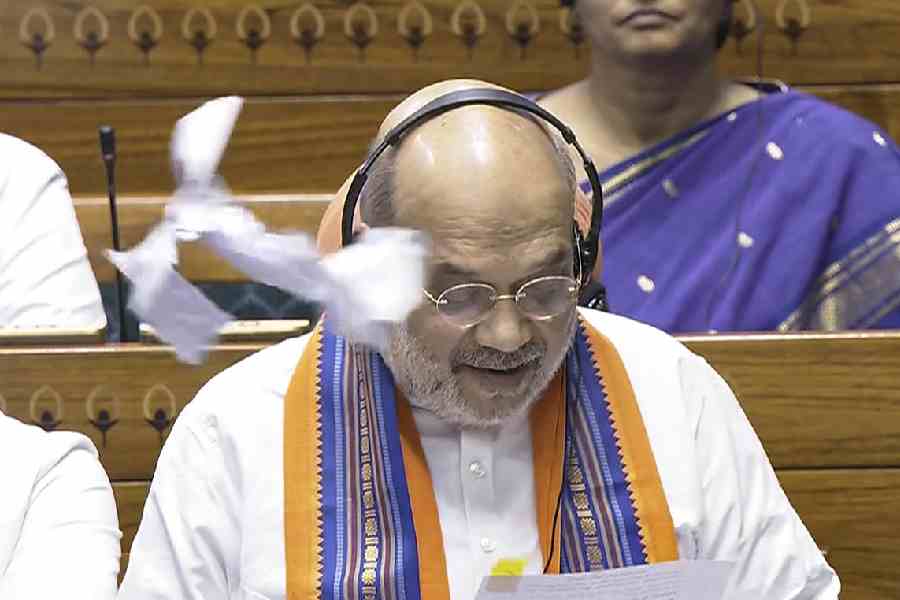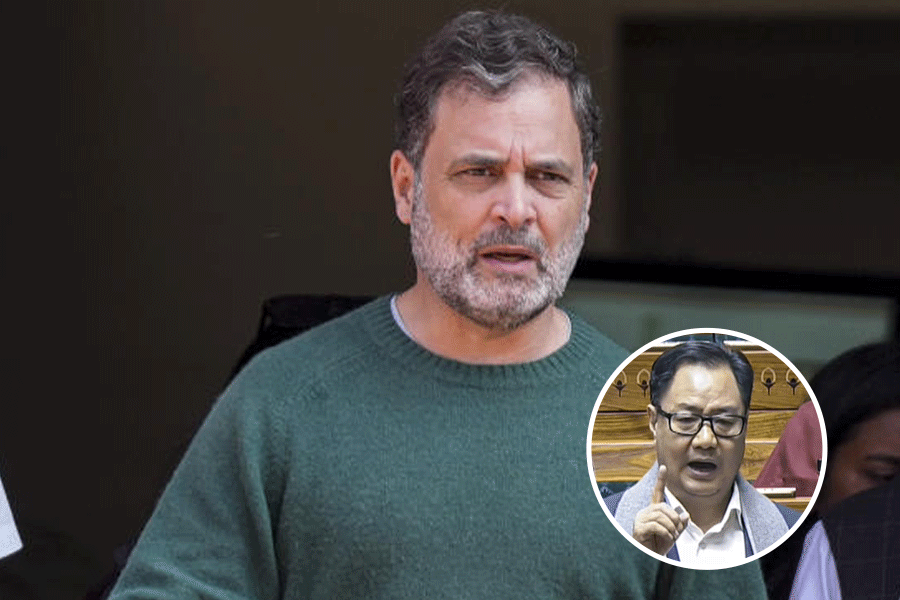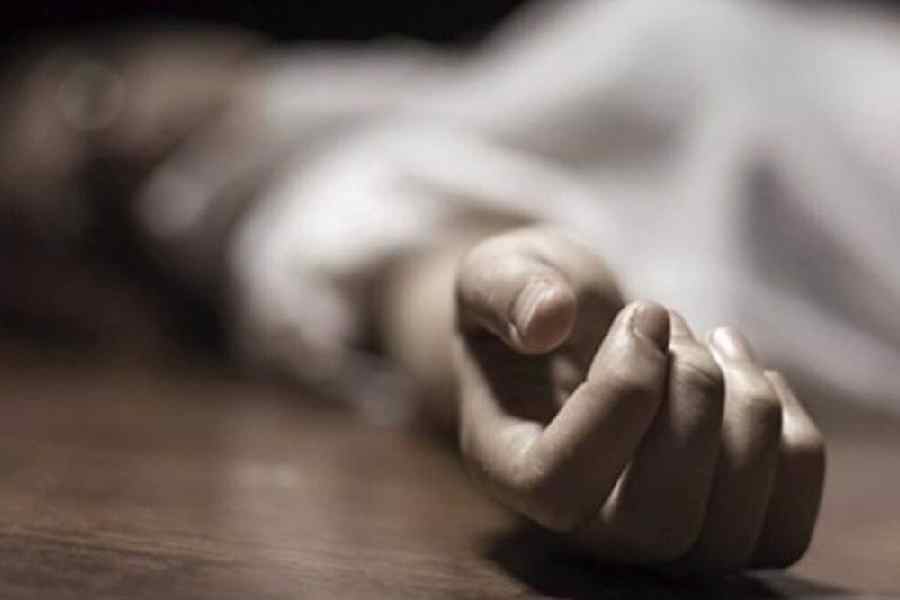The Lok Sabha on Wednesday turned into a vortex of protest as Opposition MPs tore up copies of three “draconian” bills and hurled them at home minister Amit Shah, accusing the Narendra Modi dispensation of institutionalising its alleged practice of destabilising non-NDA governments in states and turning the country into a police state.
The protests were centred around the Constitution (One Hundred And Thirtieth Amendment) Bill, which provides for the removal of the Prime Minister, chief ministers and ministers across the Centre, states and Union Territories arrested on serious charges and kept in jail for more than 30 consecutive days, even without conviction. The purpose of the Jammu and Kashmir Reorganisation (Amendment) Bill and the Government of Union Territories (Amendment) Bill is the same in their spheres
of influence.
The agitated Opposition MPs came close to a scuffle with the Treasury bench parliamentarians and forced Shah, the mover of the bills, to shift to the third row from his designated seat in the front row.
After one adjournment and amid strong protests and pieces of paper flying around, Shah managed to table the bills, which essentially seek to introduce an entirely new legal framework with far-reaching ramifications
The bills were not voted on but referred to a 31-member joint parliamentary committee for scrutiny.
The Opposition alleged that the abrupt amendments were aimed at turning the country into a police state by violating the constitutional principle of the rule of law that presumes someone innocent until proven guilty. AIMIM member Asaduddin Owaisi alleged that the bills were aimed at creating a Gestapo, the secret police of Nazi Germany.
The Lok Sabha broke into mild protest the moment Shah stood up in the front row to introduce the three amendment bills at 2pm. Trinamool members trooped to the Well, raising slogans. The Congress and other Opposition MPs stood up to object to the introduction.
The House’s mood got surcharged when Congress MP K.C. Venugopal referred to Shah’s arrest in 2010 in the Sohrabuddin Sheikh encounter case, asking if he had resigned on moral grounds. A combative Shah promptly intervened and said that when he was “framed in the fabricated case”, he had resigned as Gujarat home minister before his arrest and did not occupy any constitutional post till he was exonerated.
Amid an aggressive verbal duel between the ruling and Congress members, Venugopal shredded copies of the bills and threw the pieces towards the Well of the House. Soon, other Opposition members began tearing up copies of the bills and rushed to the Well shouting slogans of “vote chor” and “Modi Sarkar, hai hai”.
The Opposition members soon overran the Well, with MPS led by Trinamool’s Kalyan Banerjee standing in front of Shah, who was then addressing the House from the front row. They looked the home minister in the eye and chanted slogans. Some of the protesting MPs hurled torn copies of the bills at the home minister and even tried to pull his mic.
At this point, junior minister Ravneet Singh Bittu, a Congress turncoat, charged towards the Opposition members. Parliamentary affairs minister Kiren Rijiju too rushed towards Shah’s seat and angrily asked the Opposition MPs to step back. As a physical fight seemed imminent, the Speaker adjourned the House till 3pm.
Shah remained in his seat, urging the Opposition to calm down and asking BJP members to back off. The faceoff continued for over five minutes after the adjournment. Some BJP MPs and House marshals positioned themselves between the warring sides.
As the House reassembled at 3pm, over a dozen Lok Sabha security staff were deployed near the Well, triggering strong protests from the Opposition. Shah walked in and took a third-row seat, appearing to keep safe distance from the protesters in the Well. He introduced the bills and proposed that they be referred to a joint parliamentary panel.
Trinamool later alleged that two of its women MPs — Mitali Bag and Shatabdi Roy — had been inappropriately pushed by Union ministers Rijiju and Bittu. Lok Sabha sources denied the allegation, claiming they found no evidence in the CCTV footage.
Neither Modi nor leader of the Opposition Rahul Gandhi, who is leading a Yatra in Bihar, was present in the House.
AIMIM MP Asaduddin Owaisi said the bills violated the principle of separation of powers. “It gives executive agencies power to play judge, jury and executioner. This bill will empower the unelected to play the role of the executioner. Sections in this bill can be used to destabilise governments,” he said.
Congress’s Manish Tewari said the bills were “squarely destructive of the basic structure of the Constitution”.
“This bill opens the door for political misuse by instrumentalities of the state, whose arbitrary conduct has been repeatedly frowned upon by the Supreme Court. It throws all existing constitutional safeguards to the winds,” he said.
RSP parliamentarian N.K. Premchandran questioned the “undue” haste in bringing the bills, stressing they seemed to have been introduced with the “mala fide intention to destabilise state governments”.
To this, Shah rose to say there has been no haste as the bills will be referred to a parliamentary panel for scrutiny.
Speaking to reporters outside Parliament, Wayanad MP Priyanka Gandhi Vadra termed the bills “completely draconian”.
“To say it is an anti-corruption measure is just to pull a veil across the eyes of the people. Tomorrow, you can put any kind of a case on a chief minister, have him arrested for 30 days without conviction, and he ceases to be a chief minister. It is absolutely anti-constitutional, undemocratic and very unfortunate,” the Congress leader said.
Later, Shah took to X to aggressively defend the bills, hailing them as the “Modi government’s commitment to restoring moral standards in politics”. He said the bills were tabled by him “in view of the public resentment towards the menace” and to “prevent people from holding important constitutional positions while in jail”.
“When the Constitution was framed, its makers could not have imagined that in the future, political leaders would refuse to resign on moral grounds even after being arrested. In recent years, the country has witnessed shocking instances where chief ministers or ministers continued to run governments from jail without resigning,” Shah’s post said, obliquely referring to former Delhi chief minister and AAP leader Arvind Kejriwal refusing to step down after being jailed in the liquor policy case. BJP leaders claimed that Kejriwal’s case had prompted them to bring the legislation.
Shah added: “The bills also provide that an accused politician must obtain bail within 30 days of arrest. If they fail to secure bail within 30 days, then on the 31st day, either the Prime Minister or the chief minister will have to remove them; otherwise, by law, they will cease to remain eligible to function. Once granted bail through due legal process, such leaders may be reinstated to their positions.”
The home minister accused the Congress of opposing the bills to “remain above the law, run governments from jail and cling to power”.










